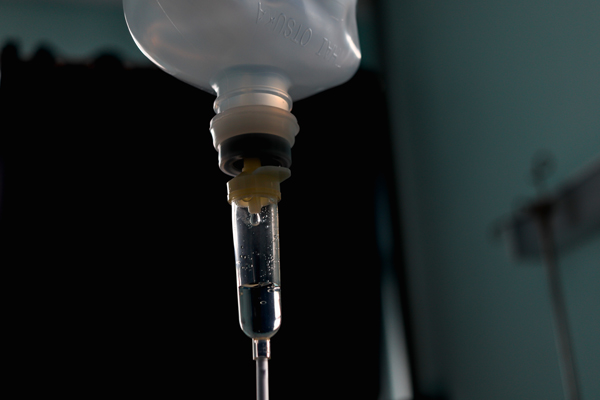Anti-Aging Peptide TreatmentFriendswood, TX
Peptides are naturally-occurring short chains of amino acids in the human body with multiple roles, from maintaining blood sugar levels to healing damaged skin. Anti-aging peptide treatments are a form of skin treatment. These treatments utilize peptides’ skin rejuvenation abilities to combat fine lines and wrinkles, giving the skin a younger, healthier appearance.
It is a privilege to age, but that does not mean you have to accept the physical signs of aging. At Reset Medical, we help patients look just like they feel: younger than they are. To find out more about anti-aging peptide treatments, contact our Friendswood clinic at 1-281-816-4707.
Understanding Anti-Aging Peptide Treatment
Peptides can be thought of as short proteins. They are, therefore, a building block of many structures throughout the human body. Insulin is the most well-known medically necessary peptide. However, collagen is more common for cosmetic concerns such as hair thinning and aging skin. It promotes skin elasticity and plumpness and strengthens the bones, muscles, and ligaments. Collagen also keeps hair and nails strong.
Although collagen naturally occurs in the body, its production slows due to hormonal changes, aging, and stress, among other reasons. Anti-aging peptide treatments often focus on renewing collagen levels in the skin to reverse fine lines and wrinkles. Other anti-aging peptides include copper (GHK-Cu) peptide and palmitoyl pentapeptide-4, both of which promote collagen production.
“Anti-aging peptide treatments often focus on renewing collagen levels in the skin to reverse fine lines and wrinkles.””
How Are Anti-Aging Peptides Used?
When used for anti-aging purposes, peptides are typically combined with other skincare ingredients and found in topical serums and moisturizers. This allows the peptides — usually collagen peptides — to soak into the skin. Other treatments include collagen injections, powders, and pills.
Peptides may be found over-the-counter (OTC) at drug stores or in nonprescription beauty products. Collagen powders, pills, and serums are some examples. However, other forms are only available at a health clinic.
Collagen injections, for example, must be administered by a trained healthcare provider. These injections are similar to Botox®. The difference is that they plump the skin with collagen to smooth out fine lines and wrinkles, while Botox freezes muscles to combat wrinkle formation.
“When used for anti-aging purposes, peptides are typically combined with other skincare ingredients and found in topical serums and moisturizers.”
Advantages and Disadvantages
Anti-aging peptide treatments can help patients look younger, boosting confidence and self-esteem. They accomplish this by minimizing the appearance of existing wrinkles and smoothing out fine lines before they deepen into new wrinkles. Other advantages of peptides depend on how the patient receives them. Topical facial serums with peptides can also clear up the following depending on their other ingredients:
- Dark spots
- Enlarged pores
- Dryness
- Inflammation
- Acne
There are a few side effects to consider, which varies per the type of treatment. Collagen injections can cause soreness at the site of injection, while peptide serums can cause rashes and allergic reactions. We will go over the potential side effects during an initial consultation with the patient.
“Anti-aging peptide treatments can help patients look younger, boosting confidence and self-esteem.”
What Makes a Good Candidate?
A good candidate for peptide treatment is someone who wishes to minimize the signs of aging. More specifically, patients with fine lines and wrinkles or sun-damaged, inflamed, scarred, discolored, or sagging skin. Collagen peptides, in particular, deliver these results by rebuilding the skin barrier. Thus, patients who have overexfoliated their skin are likely good candidates for anti-aging peptide treatments.
Further, there is no clear-cut best age to start using peptides. Many patients start in their mid-20s, taking a preventive approach to anti-aging treatment. However, it is common for patients to seek anti-aging peptide treatment in their 40s, 50s, or 60s once wrinkles have developed. Age is not a disqualifying factor for peptides.
That said, according to Medical News Today, peptides are not recommended for patients who are currently breastfeeding, are pregnant, or plan to become pregnant soon. Those with certain medical conditions that affect the skin should also steer clear of peptides to avoid worsening skin irritation or rashes. Eczema and psoriasis are two of the most common examples.
“More specifically, patients with fine lines and wrinkles or sun-damaged, inflamed, scarred, discolored, or sagging skin.”
Treatment Time and Maintaining Results
For skincare and anti-aging purposes, patients can expect to see improvements about two weeks after starting peptide treatment. Significant results can take up to six months to show. At this point, the focus will switch to maintaining treatment results.
Depending on the specific anti-aging peptide treatment, maintenance may involve:
- Using the peptide serum daily or weekly
- Continuing to take peptide pills or powder regularly
- Receiving collagen injections about four times a year
Note that collagen injections can sometimes last up to 12 months. They are not permanent, as the body will naturally dissolve the peptides over time. It is common to receive maintenance injections every three to four months so that the effects of treatment are less noticeable to others.
“Significant results can take up to six months to show.”
Get More Information Today
Anti-aging peptide treatments make it possible to prevent and reverse common signs of aging. With so many treatment options, consult Dr. Hethcox to determine which would most effectively help you reach your beauty goals. Call Reset Medical at 1-281-816-4707 to book an appointment in our Friendswood clinic.
Questions Answered on This Page
Q. Do peptides work for anti-aging?
Q. How can you use peptides for anti-aging purposes?
Q. What are the pros and cons of peptides?
Frequently Asked Questions
Q. Why are peptides known as nature’s Botox®?
A. Peptides are considered nature’s Botox® because they can yield similar anti-aging results but are naturally occurring in the human body. Technically, Botox is also naturally occurring, but it is from the same bacteria that causes botulism. It is still safe to use, though. Many simply prefer to have naturally occurring proteins injected rather than a naturally occurring toxin.
Q. Are peptides safe for sensitive skin?
A. Yes, peptides are generally considered safe for sensitive skin. However, everyone is different. If a topical peptide serum or moisturizer stings when applied, stop use and talk to a healthcare provider about alternatives.
Q. What is the best age to start anti-aging peptide treatment?
A. The best age to start any anti-aging treatment is subjective. It has become common to start using anti-aging peptide treatments as early as one’s mid-20s. Some even start earlier to prevent fine lines and skin damage before they happen. However, patients can also benefit from starting these treatments long after wrinkles have formed.
Q. Are there any side effects to know about?
A. Yes, but side effects vary based on the peptide product. Any type of injection can cause soreness around the injection site. Topical peptides may irritate the skin, especially if the patient has a skin condition like rosacea, eczema, or psoriasis.
Q. Can you use peptides if you have rosacea?
A. Yes and no. Some patients with rosacea benefit from using peptides, as they can soothe inflammation. However, others find that peptides worsen their symptoms. Our team can help you determine whether trying anti-aging peptide treatment may be worthwhile.





